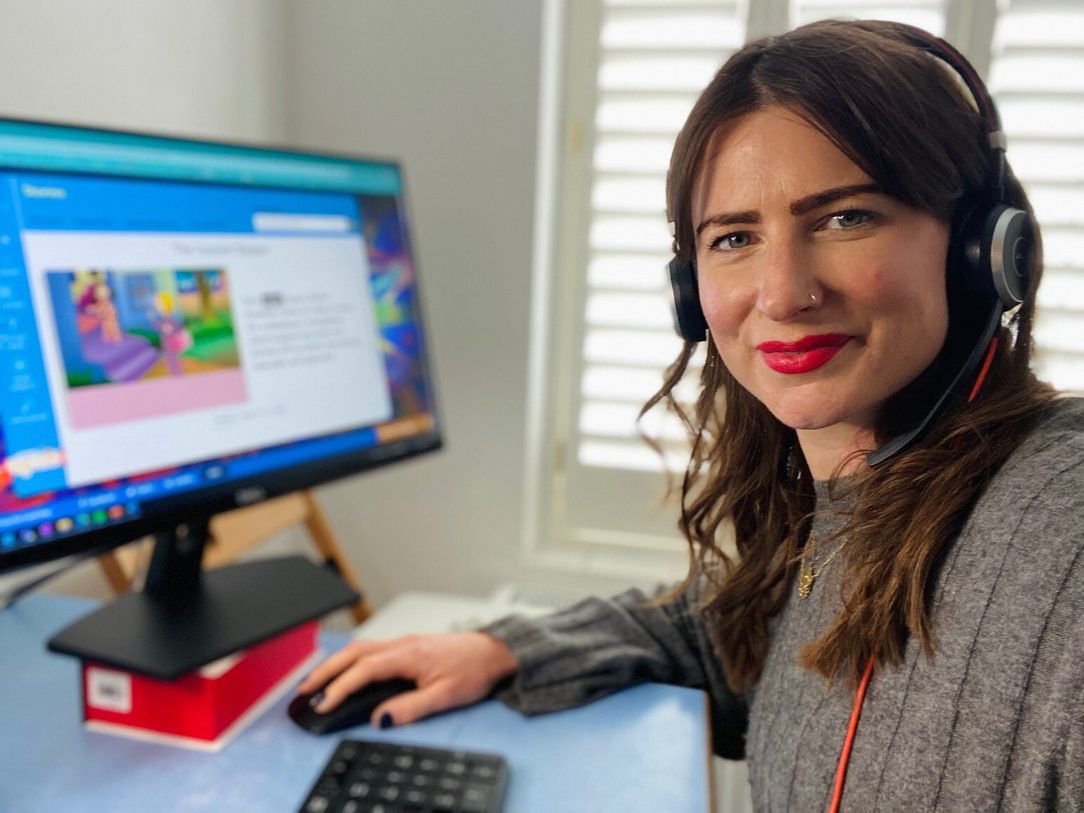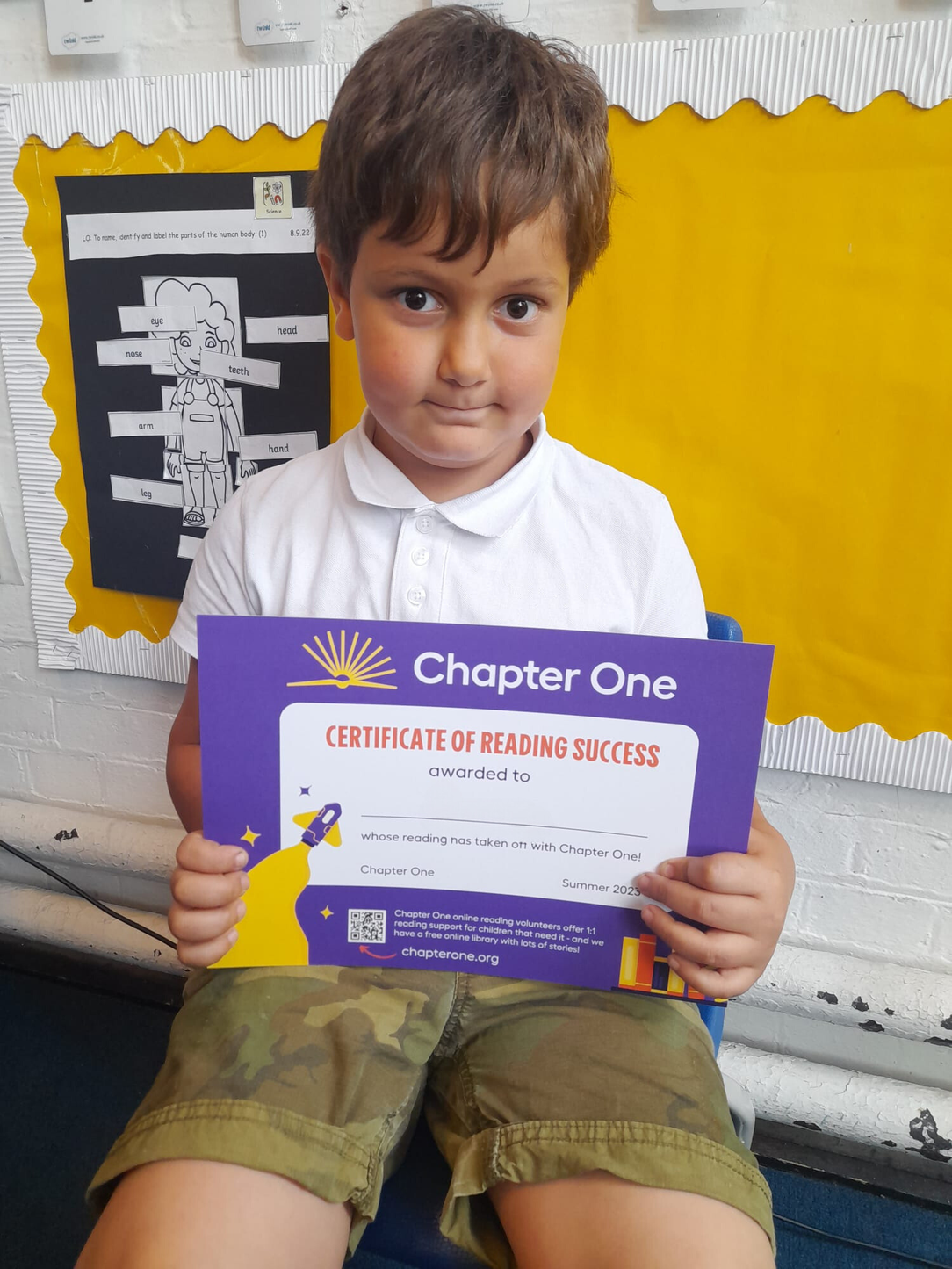Why we chose to partner with Chapter One
Laura Haigh, Corporate Responsibility Associate Director, Rothschild & Co
Share this page

What's particularly attractive to Rothschild & Co about the Chapter One programme?
R&Co4Generations is Rothschild & Co’s philanthropic group programme working to empower the next generations. We support organisations that address the effects of social and economic inequalities, and in particular, we focus on projects that develop skills and talents among young people.
Chapter One nicely aligns with our mission and it's a fantastic opportunity for our employees to engage with young people directly and make an impact.
Chapter One is a unique programme. Each volunteer makes a commitment for an entire academic year to one pupil - this means that each child on this programme gets dedicated time every week to practice, learn and enjoy reading. This also means that the volunteer gets a good understanding of their student’s capabilities from the offset and can navigate their development needs.
The remote setup of the programme was particularly great during the Covid-19 pandemic when in-person volunteering drew to a halt. And despite life returning to normal, this virtual volunteering opportunity remains one of our most popular programmes! The platform is safe, volunteering times are flexible and it is a quality interaction with the child.
The majority of Rothschild & Co volunteers have been paired with Pakeman Primary School pupils in Islington, London. Is it important to Rothschild & Co that you have an ongoing relationship with the school?
It is definitely important to us to build a long-term connection with Pakeman Primary School, its teachers, and of course the pupils. It’s fantastic to be able to visit the school and the pupils we have been reading with for the twice-yearly in-person reading celebrations.
However, we also have offices in the Midlands and the North of England so some of our volunteers are supporting schools in Bradford, Leeds, and Manchester. Ultimately, we are willing and able to support Chapter One anywhere in the country where there is a need - and that's the beauty of this online programme.
Tell us a little about the children that you've supported. How were they when you first started reading together and what changes have you seen?
I have had two experiences with very different children. My first student was a little girl with a low-level reading ability who needed a lot of support. We spent a lot of time decoding words by identifying the sounds of each letter in a word and then blending those sounds, speaking very slowly to hear the sounds and repeating the words so that they became more familiar.
I found it quite challenging to go back to basics, and it made me realise how much I take being able to read and understanding words for granted! But I am pleased to say her reading did improve week-on-week and she became more talkative as the weeks progressed. So not only did I see an improvement in her reading capabilities, I also saw it in her levels of overall confidence. There was one particularly funny memory I have when I asked, "would you like to read another story" and she responded, “I don't want to read anymore stories today, I want to play a game!” I was impressed with her assertiveness and I appreciated her letting me know so that we could get the best out of our time together.
I have also read with a little boy who has a very high reading ability. Initially, I questioned his need to be on the programme because he was already so competent and we whizzed through stories. But, actually, he was struggling with comprehension. Typically, at the end of the book, I would ask him some questions to check his understanding of the story but he found it difficult to reflect and answer correctly. I messaged his teacher via the Chapter One platform and she concurred that this was a challenge for him. So I adjusted our sessions so that we spent more time on each page of a story, discussing the pictures, the characters, and what was happening. This helped him to recall the story and speak confidently about his understanding and to articulate what he liked about the book.
What tips would you give to new volunteers?
I know it's mandatory, but do the training provided by Chapter One! And revisit time and again. There are things that I had forgotten and areas that I continually try to improve upon as a volunteer, for example, what positive reinforcement sounds like and when is the right time to step in? How long do you leave your pupil to try to pronounce a word or respond when checking their comprehension?
As a volunteer, you do have a sense of responsibility and of course, you want the child to do well. But it's ultimately about being patient - both with yourself as well as your child. I was a little nervous initially but I soon got the hang of it, and anyone can make an impact, particularly when you keep the purpose of the programme in the front of your mind.
By helping a child who is struggling with their literacy, we are giving them a better start in life and the tools they need to succeed. To me, that is very motivating.
Laura Haigh, Rothschild & Co
What does the 30 minutes a week you have with your pupil give you personally?
I like to schedule my calls with my student every Monday morning - I think it's a great way to start my week. It's incredibly fulfilling to see my student's reading ability improve, and their confidence too, as we progress through the academic year.
As part of my role, I am in regular touch with our other Rothschild & Co Chapter One volunteers who like to share their feedback and experiences. It’s just lovely when they drop me messages or pop by my desk to tell me how much they enjoy volunteering with the programme or how their student has gone up a level and that they are so proud of them. One of my colleagues recently shared that she had been having a challenging day, but it had all been made better because during her 30-minute Chapter One session her pupil had said “thank you for helping me so much with my reading”. She felt like she was making a difference.
It's fair to say we all have busy calendars these days but when you're in that moment - that 30 minutes of uninterrupted time to simply focus on your pupil - it gives you purpose. And as I mentioned earlier, it's not just about literacy, it’s seeing the child’s overall confidence grow so that they feel comfortable talking. being funny or cheeky, or whatever. That’s all part of it and it makes for such a great experience.
How's the experience challenged or changed your perceptions about literacy?
I was shocked to learn that England has one of the lowest literacy rates in the developed world, and I can only imagine that the Covid school closures have exacerbated this.
I once came across the phrase “How can you read to learn, before you've learned to read?” This struck me because the ability to read is a fundamental life skill. By helping a child who is struggling with their literacy, we are giving them a better start in life and the tools they need to succeed. To me, that is very motivating.
Ali's story

Ali* is a very quiet child in Ms Redmond's year 1 class at Pakeman Primary School, Islington. After reading with Lynn, a Chapter one online reading volunteer from Rothschild & Co over the 2022-23 school year, Ali has made two years' worth of reading progress. His reading confidence and fluency has massively improved. He now reads for pleasure at home with his mum and loves to go to the library.
*not his real name
It all starts with literacy
HOW CAN COMPANIES GET INVOLVED IN CHAPTER ONE?
Chapter One’s virtual, time-efficient, flexible model for volunteering will enhance your company’s employee value proposition, whilst fulfilling CSR or social value commitments around education, social mobility and inclusion. Employees can:
- volunteer online directly from their desks with no travel
- make a direct impact on the lives of disadvantaged children
- support local communities across the UK
- improve their own well-being by helping others
- reconnect with your company’s social purpose
If you’re interested in joining us, we’d love to hear from you! You’ll find out who we currently work with on our partners’ page.. You can contact us here or email sarah.taylor@chapterone.org




